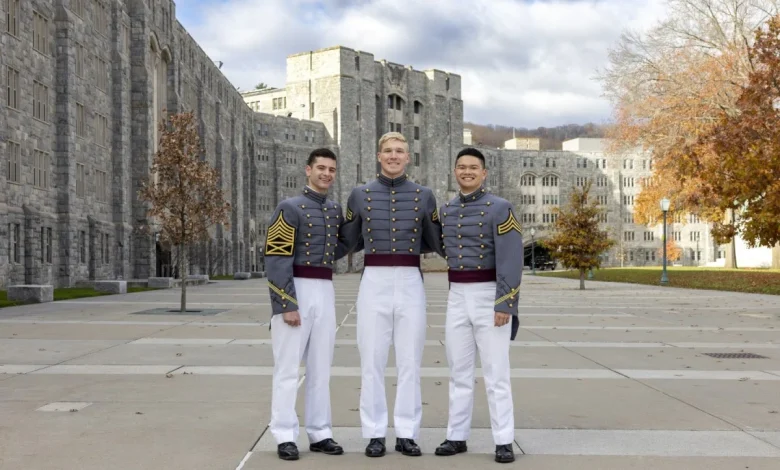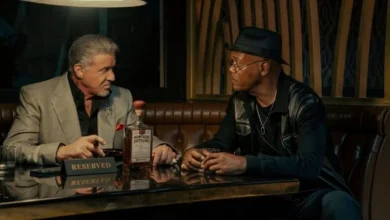Army Reserve Soldier, West Point cadets selected for prestigious Rhodes Scholarship

Four individuals from across the U.S. Army were recently announced as recipients of the 2026 Rhodes Scholarship. One of the world’s oldest academic awards, the Rhodes Scholarship fully funds postgraduate study at the United Kingdom’s University of Oxford.
The U.S. Military Academy is proud to announce that class of 2026 cadets Max Felter, Johnathan Pinc and Brandon Tran have been selected as Rhodes Scholars, furthering West Point’s long-standing tradition of academic excellence and service-focused leadership.
“These three cadets represent the very best of West Point as leaders of character already contributing to some of the nation’s most complex challenges,” said Dean of the Academic Board Brig. Gen. Shane R. Reeves. “We are incredibly proud of them and look forward to their impact as Army officers.”
With three Rhodes Scholars this year, West Point is tied for first in the nation alongside Harvard University, Yale University and the Massachusetts Institute of Technology.
The United States Army Reserve Command also proudly recognizes the selection of 2nd Lt. Andrew Tomusiak of Washington, D.C. as a Rhodes Scholar.
About the Recipients
Class of 2026 Cadets (left to right) Johnathan Pinc, Max Felter and Brandon Tran have been selected as Rhodes Scholars.
VIEW ORIGINAL
Cadet Max Felter, originally from Palo Alto, Calif., is an applied statistics and data science major at West Point. He earned the Master of the Sword, an honor given to the top ranked cadet in West Point’s physical education curriculum. His research focuses on computer vision and sensor fusion, technologies that are rapidly becoming foundational components of defense innovation. Felter has interned with defense and industry organizations, where he applied AI and machine learning to Army data analytics. In the Corps of Cadets, he has developed leadership skills as a platoon leader for Cadet Basic Training and now as a Company Commander, responsible for the training and discipline of 125 other cadets. Following graduation, he hopes to be commissioned as an infantry officer.
“I am incredibly humbled to be selected as a Rhodes Scholar. I’d like to thank my family, friends, and mentors that have been so important in my journey here. It is an honor to represent West Point and the Army as I further my studies on the ethical innovation and integration of AI for defense.”
Cadet Johnathan Pinc, originally from Medina, Ohio, is a chemistry major at West Point and the intelligence and public affairs officer for the Corps of Cadets’ Third Regiment. He is the cadet-in-charge of the West Point chapter of the American Chemical Society. Johnathan has presented research on neurodegenerative disease at six conferences and published two peer-reviewed articles, including one in which he is the lead author. A talented athlete, he competed on West Point’s Division I Gymnastics Team and now serves as the team’s manager. Pinc knows that to solve problems like neurodegenerative disease, the Army needs leaders who can coordinate disparate resources and inspire focused effort. His goal is to become this kind of leader. Upon graduation, he aspires to become a cyber officer.
“The Rhodes Scholarship is an opportunity to tackle the world’s leading problems. I am so grateful to my parents, mentors, and peers who have helped me to grow as a leader, scholar, and person. I hope to continue making them proud in the future.”
Cadet Brandon Tran, originally from Fountain Valley, Calif., is a Truman and Stamps Scholar. At West Point, he studies international affairs and Chinese as a double major. He has interned across defense organizations, working on Indo-Pacific security issues. Tran is also a Fellow with the Center for the Study of the Presidency and Congress, a Non-Resident Fellow for the Indo-Pacific Studies Center, and the former Chief Administrative Officer of the first Oxford Semiconductor Conference. He has been published in several policy and security-focused outlets. In the Corps of Cadets, he has served as a company military development noncommissioned officer and a Cadet Leader Development Training intelligence officer. His experience in planning equipped him for his current role: Battalion Sandhurst Officer, facilitating the training and preparation for the Sandhurst competition in military skills. He hopes to serve as a Military Intelligence Officer upon graduation.
“Winning the Rhodes Scholarship was a culmination of years of effort, not just on my part, but on the part of my family and friends who have supported me every step of the way. I hope to continue to bring honor to my community as I represent our nation as a Rhodes Scholar.”
2nd Lt. Andrew Tomusiak poses for a photo.
VIEW ORIGINAL
2nd Lt. Andrew H. Tomusiak commissioned from George Washington University ROTC on May 20, 2024, as a U.S. Army Reserve military intelligence officer, Tomusiak currently serves as a platoon leader in a human intelligence company under the 325th Military Intelligence Battalion. He leads a platoon of twenty-five Soldiers engaged in critical human intelligence operations in support of national defense. His military training includes successful completion of Army Air Assault School, underscoring his commitment to readiness and operational excellence.
Beyond his military service, Tomusiak contributes to the nation’s foreign policy as a program analyst at the U.S. State Department. He earned his Bachelor of Arts in International Affairs from George Washington University. During his undergraduate studies, he co-founded a fellowship dedicated to interfaith dialogue and completed multiple internships focused on peace and reconciliation, reflecting his dedication to fostering understanding and stability across communities.
While at the University of Oxford, Tomusiak will pursue both a graduate degree in Public Policy and a Master of Science in Public Policy Research, further preparing him to address complex global challenges with innovative policy solutions.
Tomusiak will bring the Army Reserve’s values of service, leadership and integrity with him as a Rhodes Scholar. His dual commitment to military service and public policy highlights the vital role of citizen-Soldiers in strengthening both national security and international cooperation.





